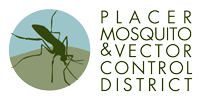Public Health Officials Urge Caution
Due to increased plague activity in the Tahoe Basin area last fall, public health officials advise caution this summer. With the upcoming Memorial Day holiday heralding the unofficial beginning of the season, residents and visitors alike are being asked to be aware of the potential risk of rodent-borne disease. Rodent populations are routinely monitored for plague activity in California. Last September and October, chipmunks and squirrels in Nevada, Placer, and El Dorado counties tested positive for the disease. Because plague cycles between periods of low and high activity, it is possible the increased activity observed last fall will continue into 2013.
“Visitors to area picnic spots and campgrounds and area residents should take precautionary measures to protect themselves from plague, a disease transmitted by infected fleas,” said Joel Buettner, general manager of the Placer Mosquito and Vector Control District. “Avoiding contact with wild rodents and their fleas can greatly reduce the risk of becoming infected with plague,” stated Buettner. Wild rodents that can carry plague include ground squirrels, chipmunks, woodrats, mice, and marmots. “We discourage people from feeding wild rodents in picnic or campground areas and urge folks to never handle sick or dead rodents. Also, leave your pets at home when visiting areas with elevated plague risk,” he advised.
Plague is a rare, yet highly infectious, and potentially deadly disease. People may be exposed to plague through the bite of an infected flea, handling an infected rodent, or exposure to an infected pet (especially a sick cat). It is also important to avoid dead rodents, as infected fleas may be jumping off the dead animals and seeking new hosts nearby.
Early symptoms of plague include high fever, chills, nausea, weakness and swollen lymph nodes
in the neck, armpit or groin. Individuals who develop these symptoms within two weeks of possible exposure should seek immediate medical attention and inform their health care provider that they have been in a plague-endemic area. Plague is curable in its early stages, but may be fatal if not treated early.
Here are some recommended precautions for residents and those visiting the Tahoe Basin area this summer:
• Avoid camping, sleeping or resting near rodent burrows.
• Wear long pants tucked into boot tops to reduce exposure to fleas.
• Apply insect repellent containing DEET on socks and trouser cuffs.
• Keep wild rodents out of homes, trailers and outbuildings.
• Report any sick or dead animals to forest, campground or local health officials.
• For protection of pets, keep pets leashed and away from dead rodents. If a pet becomes sick after visiting a high-risk area, take the pet to a veterinary clinic and inform them that the pet has been in an area where rodents have plague.
For more information about plague and plague surveillance, please visit the California Department of Public Health’s website: www.cdph.ca.gov/HealthInfo/discond/Pages/Plague.aspx






